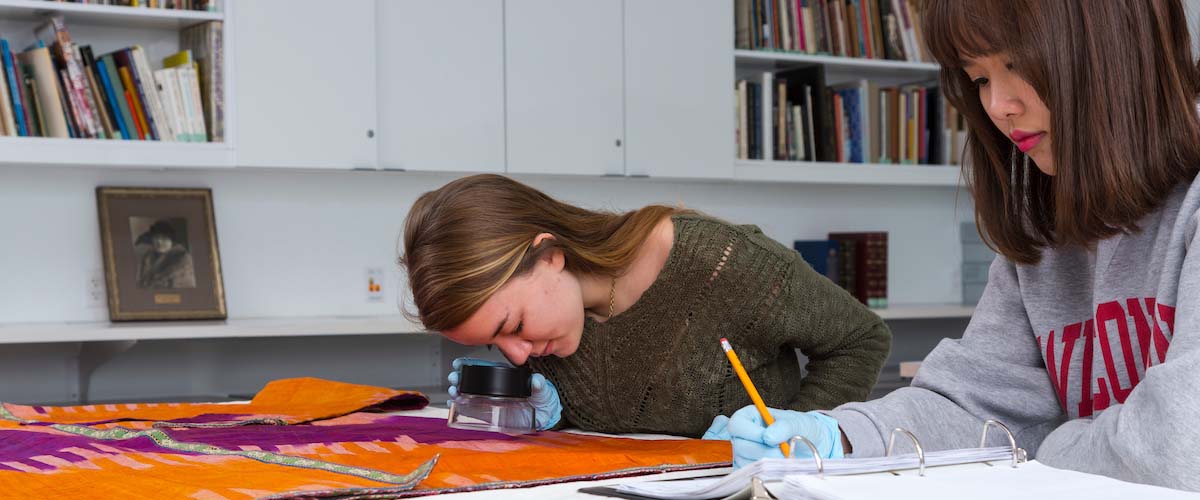
Many of Helen Louise Allen’s students have a picture in their minds of their teacher sitting at a loom, her skilled hands creating — seemingly out of nothing — extraordinary textiles. But there was a side of the delightfully eccentric woman that few of her students ever saw: the hunter.
Allen traveled the earth, scouring its remote corners for textiles that held within their weave the keys to a culture. She traveled lightly so that she could carry home as many artifacts as possible. Allen knew the world was changing and that soon many of the greatest fabrics, designs, and techniques would be lost forever.
“Allen knew the world was changing and that soon many of the greatest fabrics, designs, and techniques would be lost forever.”
These quests often lasted for months, and when she would return to Madison, she was always laden with treasures. These treasures she would present to her students, who held them in their hands, felt their weight, admired their textures, studied their patterns, and — most importantly — were transported far from Wisconsin.
That is what the Helen Louise Allen Textile Collection (HLATC) is all about: the power of textiles to transport us to unknown worlds and give us instant appreciation for other cultures.
Located in the UW–Madison School of Human Ecology, the HLATC is primarily a teaching collection serving the Design Studies Department and other academic disciplines on campus, including the Material Culture Program.
The collection of more than 13,000 artifacts aids learning about textiles from both cultural and artistic perspectives. Portions of the collection are on view year-round in the Lynn Mecklenburg Reading Room and during scheduled exhibitions in the Ruth Davis Design Gallery.
Currently, private funds support everything from the gloves that visitors wear when handling the textiles to the salaries of the collection’s expert and dedicated staff. The continuing support of alumni and friends is critical in ensuring that this world-class collection thrives for years to come.
